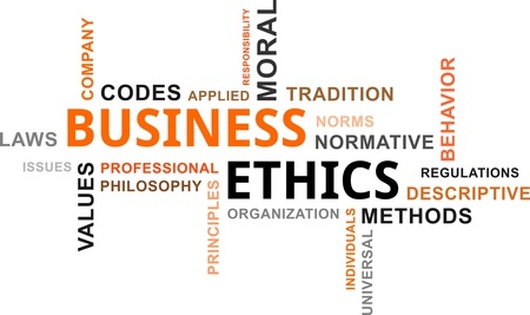|
Intro by Skip Cohen Okay, so I know many of you, like me, might be intimidated by a guest post by a Doctor of Philosophy from the academic world, but trust me a little. In conversations over the phone with Joan, I've gotten to know her passion for our craft as well as education and philosophy. And, if you think about the three questions she's presenting in this guest post, she's further defined a statement I've made over the years. "With the exception of modern medicine, there is no other profession that's given the world more than photography. No matter what side of the business you're in, you've been a key part of an industry dedicated to capturing memories and stopping time for millions of people each year. You've helped to capture the beauty of the world and the disasters, both large and small. Think about what a wedding album might look like without photographs. Sketches, stick figures and a lot of text would describe the power of that tear in a father's eyes as he walks his daughter down the aisle. Or, what would a newspaper or magazine look like without the images?" Society trusts us to deliver, to capture those moments and with that trust comes a huge responsibility. Joan is only touching the tip of the iceberg in this first guest post, but I hope there are more coming. It's so important for us to define the parameters of our profession so we can better establish a code of ethics that also defines the true meaning of calling yourself a "professional". (Listen to Joan's podcast by clicking the link below.) by Joan Whitman Hoff
What does it mean to say that photography is a profession? As someone who has taught professional ethics for thirty plus years, and someone who also has a vested interest in photography, I have become interested in the ‘moral dimension’ of the profession. In order to reflect upon this, we must ask: In what sense is photography a profession? In what sense is there a moral dimension to that profession? What are some of the responsibilities a professional photographer has? Photography can be considered a profession, even though it might differ from the ‘historical’ professions, such as law, medicine, and education. Professionals have expertise in an area that provides service to society. There is a particular set of professional practices and principles that that one must follow, which have a moral dimension. As Thomas and Rosellen Garret and Harold Baillie note, the moral dimension of being a professional entails:
In what way does photography entail a dedication to a particular way of life? Photography requires a dedication to several things. First is that it requires education, both theoretical and practical. Camera functions, lighting, developing, printing, etc., require practice and as a professional, it requires helping to better the profession as much as it requires bettering/improving one’s knowledge, skills, etc. It also entails developing good business and human relation practices. In what sense does photography entail activities important to the functioning of society? The history of photography has taught us much about history itself, even though we know that photographs don’t always tell the truth. Photographs, and photographers, are powerful in that they aid in the advancement of our knowledge and understanding of the world, and of ourselves as individuals in the world. If we think about the way in which visual media has been used to convey information, etc., we can understand its importance. Likewise, a single photograph can change a person’s life; a portrait can help someone see themselves in a new way and foster confidence. So, as much as it has an impact on an individual’s life, it has a social impact, too. We change the world, and hopefully make it better, one person at a time. In what sense does photography (or being a photographer) require service to society? Photographers serve the world in a number of ways, whether photojournalists, portrait artists, or school photographers, to name but a few. They do so by capturing images, moments, events, of individuals and collectives that highlight moments in life that record history visually and help to define experiences. In terms of business, photographers provide services that are of the utmost importance to individuals and other businesses, and this is exemplified in the wide span of photographic activities that are undertaken for the sake of self and others in society and they fulfill a need. Summary While each of these can be elaborated upon, it is clear that photography is a profession that provides important services to society. Like other professions, photographers have codes of ethics outlined for them by professional associations, which provide guidelines for the activities of photographers and remind them of their responsibilities as photographers in society. Trust, truthfulness, and integrity are just a few of the concepts noted in many of these codes, all of which can help to foster good relationships and good business, which are key components of moral professionalism. Note: Interested in finding out more about Joan or contacting her directly? You can contact her through her Website, Facebook, LinkedIn
0 Comments
|
Archives
November 2016
|
© 2019 Skip Cohen University


 RSS Feed
RSS Feed